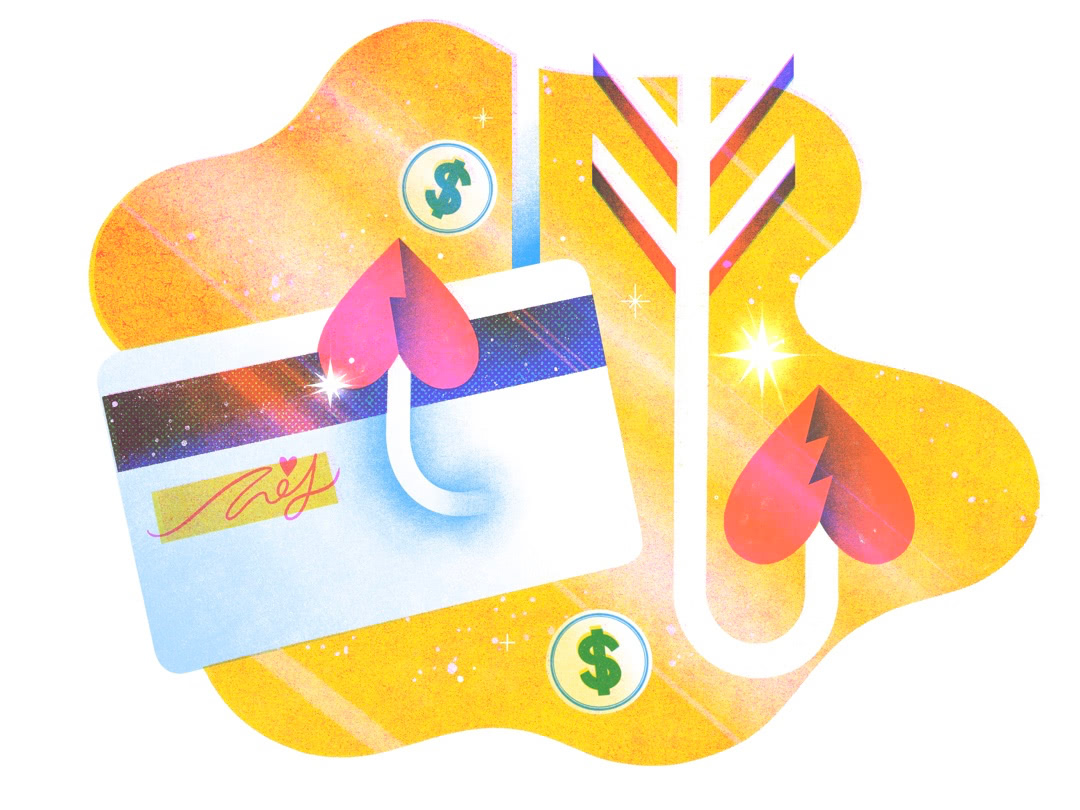

Romance & Dating Scams
A romance scam is when someone pretends to be in a relationship with their victim in order to steal information or money. These crimes are all over the internet—behind messaging apps, dating sites, social media profiles. The world is so digital now, that it’s normal to find social groups, friends, and even romantic partners online, quickly and easily. But accepting the ease of a digital age invites a whole slew of unexpected risks that are lurking behind the screens.
Remember that age-old warning, “don’t take anything from strangers?” But at what point does the charmer you meet online stop being categorized as a stranger—a day, a week, a year? Are they safe when you meet them in person or through video call?
Take a look at these situations and ask yourself if you or someone you know is or has ever been involved in something similar.
- An online partner offers to give money for rent or food in exchange for depositing $5,000 into a bank account and delivering it, in cash, to one of their friends.
- Not too long after meeting an online stranger, the deceiver confesses their love and starts asking for little pick-me-ups here and there. By the end of it all, nearly 30,000 dollars is lost without realizing it.
- A beauty from overseas wants a ring and a white wedding. There’s only one problem—the stranded foreigner doesn’t have enough money to buy a plane ticket and needs help.
The three examples above are just a few commonly used romance scams.
Money-hungry con artists have thought long and hard about how they’ll ensnare their victims. If you pay attention, you’ll be able to recognize every stage of the process and identify a scam before it’s too late.

Stage 1: The Catfish Profile
Every scammer needs an online platform to use as well as a likable persona. They use fake social media, dating, and messaging app profiles to attract their targeted victim pool.
The skilled catfish won’t have a lot of information or pictures on their profile. The few pictures they do have are stolen and the image is often someone trustworthy like a soldier, businessman, model, firefighter, doctor, nurse, or even just a good-looking person with kind eyes, that typically lives in another country.
Stage 2: Grooming the victim
The scammer takes any chance they get to relate and spoil their target.
- They'll play with fate by sharing a fake backstory similar to the victims’.
- They're confident and quick to demonstrate their love or need for their target shortly after the initial meeting.
- They always seem to say the “right” thing.
- They send flowers, chocolates, jewelry, or other gifts to make up for not being able to meet in person.
There’s just one thing they won’t be able to do—give out physical attention. They always have a reasonable excuse for not meeting in person.
- They live overseas.
- They’re away on business—military deployment, business training, business trip, internship, etc.
- They’re visiting relatives overseas.
- An emergency came up and they’re already out of town.
- They don’t have enough money to travel and meet up.
The list goes on.
Stage 3: The money request
Within weeks of knowing them, the scammer will start asking for help. It starts small with little things like gas money or a bus fare because they “forgot their wallet” and are stranded—or some other justifiable reason. This first request is a test, “Will the target pass or fail?” The minute a person gives them money, it shows they’re willing and likely to again.
You might think it’d be easy to recognize a romance scam and you’re right, it is, but the minute emotions are involved, rationality is thrown out and justification sets in. Most people would do anything for someone they love.

Never lend money to someone unless you’re okay with not getting it back. Falling victim to such a hoax has serious repercussions that most people don’t consider.
Repercussions: Financially and Lawfully Tied
Let’s say a romantic partner you’ve never met asks you to deposit a sum of money that, unbeknownst to you, they’ve illegally acquired—if you do it, you’d take on the role of the money mule—someone who transfers or moves money that’s been illegally acquired. With or without you knowing it, you’ve become an accomplice in their criminal operation and any participation in a money laundering or bank fraud ring could have you facing charges for mail fraud, wire fraud, bank fraud, or money laundering. Because of this, it’s important to know where the money you’re depositing is coming from.
To top it off, you’ll probably end up owing the bank money—and a lot of it too. Say someone asks you to deposit a $30,000 check into the bank so you can pull it all out, in cash, and send it to them. Once you send it to them, your partner disappears from your life, the fraud department sees the check is fake and the “money” that was in the bank gets pulled out of the account, leaving you $30,000 in the hole.
It’s likely you won’t see it coming. Swindlers have supposed charm, money, good looks. But, giving money or making obligations to someone you’ve only met online is never a good idea. Here’s what to do if you feel like you or someone you know has fallen victim to a romance scam.
Research
- If you’re worried about the validity of a person’s profile, save their profile photo to your computer and do a reverse image search to see if that image was stolen from another website. See how to do that here.
- Scammers will often get message scripts off the internet that have been pre-written, so if you copy their messages and paste them into any search engine you can see if there are any existing messaging scripts that match it.
- Recognize that revictimization is very common when it comes to dating and romance scams. Sometimes a scammer will even target the same victim multiple times.
Report the crime
- Contact your bank’s fraud department.
- If you met the fraudster on a dating app, report them to the dating site.
- Report them to the FBI Internet Crime Complain Center.
Neither Banzai nor its sponsoring partners make any warranties or representations as to the accuracy, applicability, completeness, or suitability for any particular purpose of the information contained herein. Banzai and its sponsoring partners expressly disclaim any liability arising from the use or misuse of these materials and, by visiting this site, you agree to release Banzai and its sponsoring partners from any such liability. Do not rely upon the information provided in this content when making decisions regarding financial or legal matters without first consulting with a qualified, licensed professional.

